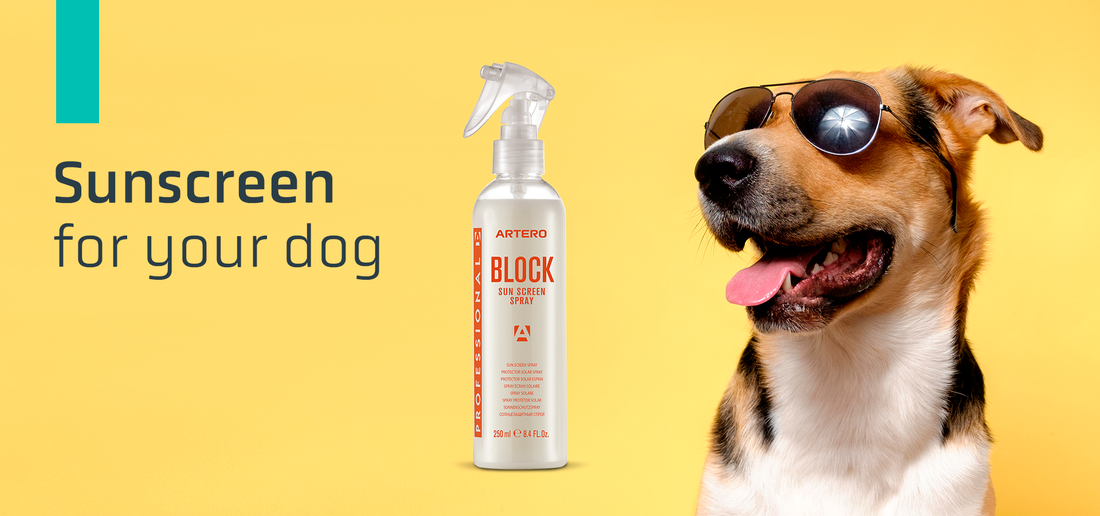Sun Risks
Sunburn isn’t just painful for dogs. Sunburn can lead to more serious problems, including certain types of skin cancer, such as squamous cell carcinoma, malignant melanomas, and hemangiomas. Sunburn also exacerbates certain conditions, such as autoimmune disorders and dematitis, and can cause discomfort at surgery sites. Luckily, a little careful planning can prevent your dog from catching too many ultraviolet (UV) rays. And any dog with light or white pigment might losing its colour, drying out and damaging the cuticle. Even some dogs with thick coat of hairs may experience hair loss from seasonal shedding or a health condition that may cause their coats to become very thin and may then be at greater risk for sunburn.
Sunscreen for Dogs
Sunscreen protects dogs from sunburn. But using the wrong type of sunscreen can also cause problems. It’s highly important that you only use formulas that are specifically intended as sunscreen for dogs. They should not contain zinc oxide or para-aminobenzoic acid (PABA), as these ingredients are toxic to dogs if ingested, and dogs will often lick their skin and accidentally ingest the sunscreen.

Artero Block Sunscreen Spray
Sunscreen for dogs in Spray, with great capacity to protect from the effects of UVA and infrared rays on the mantle. Prevents hair from burning, losing its color, drying out and damaging the cuticle.
How to use:
Spray around the coat, especially upper areas, ear tips, inner thighs, bridge of nose and anywhere else where pigmentation is light. It can be brushed after its application to distribute it deeply. And able to apply on wet hairs.
You should apply sunscreen about 20 minutes before your dog goes out. And while they are out in the sun, reapply the sunscreen every 4 to 6 hours or after your dog goes swimming.


 Whatsapp us!
Whatsapp us!